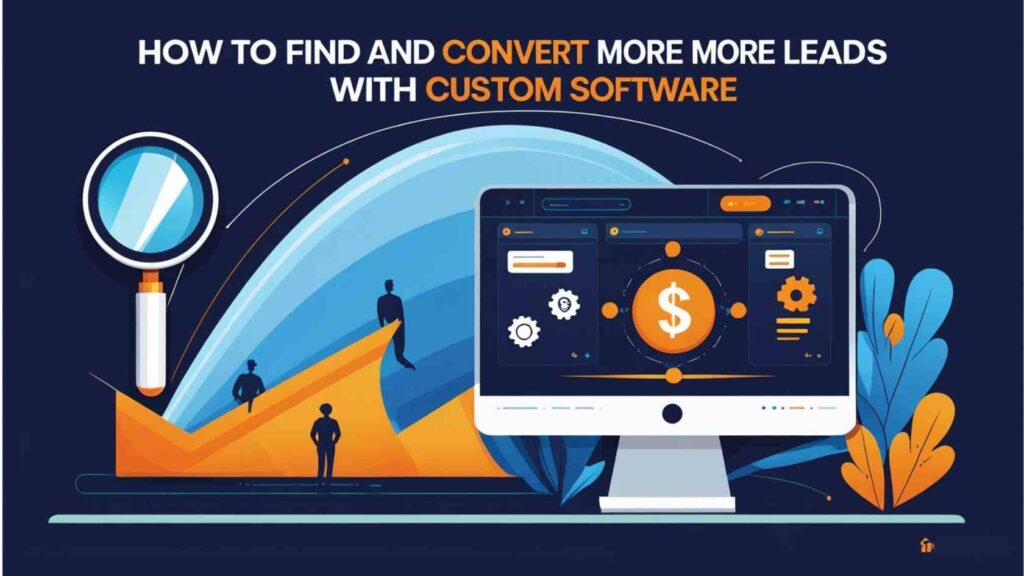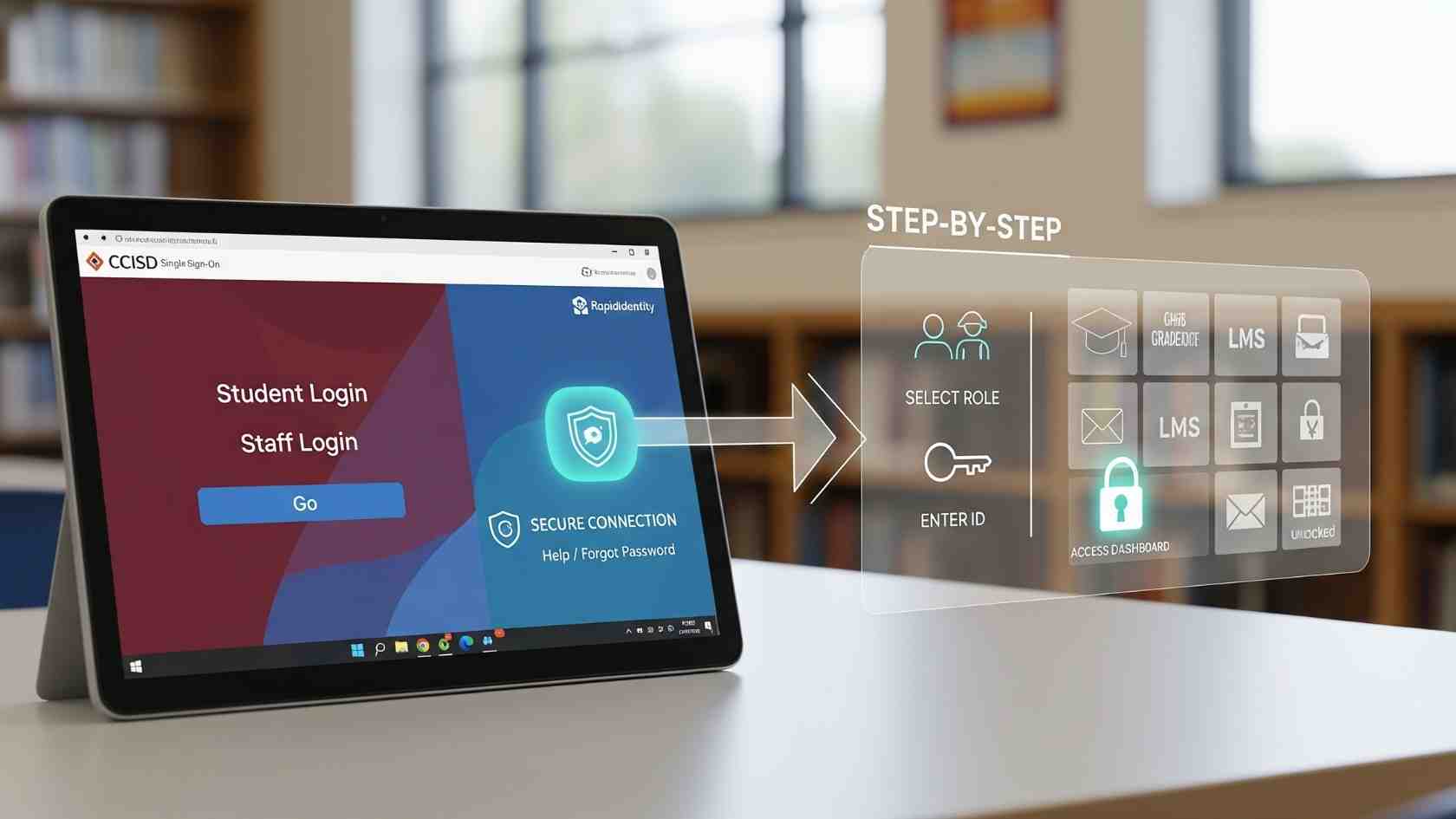The process of creating and transforming quality leads into customer-based sales leads has grown highly complex using modern digital market tools in this scenario. Organizations now compete for appropriate market attention as well as conversion opportunities in front of their competitors. Generic CRM tools and marketing automation platforms spread across the market reveal fundamental flaws to businesses because their data falls apart they cannot personalize interactions and their workflows mismatch sales stages.
The reality? The generic solutions designed for mass users lead to major missed opportunities that have great sales potential. This is where custom software development steps in as a game-changer. Unlike pre-packaged solutions, custom software can be designed to align perfectly with a company’s lead generation strategy, industry-specific needs, and customer behaviour patterns. Companies like Trinetix specialize in enterprise-grade custom software development that doesn’t just solve problems but reimagines how leads are captured and converted.
Creating bespoke systems that address gaps standard tools can’t. In many ways, custom software development solutions are redefining what modern lead generation looks like: Highly personalized, data-driven, and automated in ways that reflect your unique business process — not a template from a SaaS vendor. As AI and behavioural analytics become standard expectations for effective lead engagement, only companies that own and control their software infrastructure will be agile enough to adapt to these rapidly shifting dynamics.
Custom Software as a Competitive Advantage in Modern Lead Generation
Businesses have relied on existing CRM and marketing platforms for years to acquire potential customers and guide them toward making sales decisions. As both industries transform along with buying journeys standard universal CRM system becomes mismatched with modern business requirements. In the present-day lead generation maintains continuous operation like an active biological system while customer preferences transform instantaneously and buyers connect through numerous digital and physical platforms.
Off-the-shelf tools are simply not built to handle this level of complexity, especially for industries like blockchain gaming, fintech, or advanced SaaS platforms — where the lead journey is anything but linear. Custom software, on the other hand, gives businesses direct control over how they define, track, and engage their leads. Instead of
working around the limitations of existing software, companies can design solutions that align perfectly with how their customers buy — mapping every touchpoint and automating responses in ways that feel natural to the lead. For example, Briostack provides specialized tools for sales lead management for pest control businesses, helping track, organize, and prioritize prospects efficiently—especially useful for businesses with seasonal service peaks.
Moreover, custom platforms enable integration across niche ecosystems — whether it’s connecting decentralized apps for blockchain users or building data bridges between AI engines and marketing funnels. This creates a seamless experience for both the business and the lead, reducing friction, and maximizing conversion potential.
However, Microsoft and Google allow companies to construct their platforms which foster connections between specialized ecosystems including decentralized applications for blockchain users as well as AI engines for marketing funnels. The solution generates a unified process for businesses alongside leads leading to reduced obstacles that improve both parties’ success rates.
For companies ready to compete on precision, personalization, and speed, custom software is no longer an option — it’s a strategic necessity.
3 Powerful Ways Custom Software Helps You Find & Convert More Leads
1. Intelligent Data Enrichment & Lead Profiling Systems
One of the most underrated advantages of custom software is its ability to create smart, adaptive lead profiling systems that go far beyond traditional databases. Instead of static spreadsheets or basic CRM entries, custom solutions can automatically enrich leads with AI-driven insights — in real time.
A system exists that collects leads through e-mails alongside social data, behavioral
patterns and purchasing history as well as predictive purchasing signals during continuous updates from incoming interactions. The system generates evolving profiles of all leads which sales teams can use for highly personalized communication to drive elevated conversion metrics. Results-driven insights delivered immediately help teams convert cold prospects into valuable opportunities in a short period.
2. Seamless Integrations with Unique
Buyer Journeys (Omnichannel Sync) The average lead today may interact with your company across the web, mobile, email, Discord, and LinkedIn — sometimes all in the same day. Yet, most companies still rely on fragmented tools that don’t talk to each other, leaving massive gaps in the buyer journey. Custom software solves this by building tailored, omnichannel systems that integrate these touchpoints into a unified lead journey.
For example, a blockchain gaming platform could track a user’s behaviour from Discord to in-game actions to email inquiries, creating a 360-degree view of that lead’s intent. Table: Comparison of Standard Tools Custom Software in Lead Journey Tracking Feature Standard CRM Tools Custom Software Solutions Cross-platform lead tracking Limited to email/web Full integration (web, chat, apps, social) Behavioral analysis Basic (page visits, forms) Deep, AI-driven insights (intent, timing) Personalized workflows Static templates Fully dynamic, context-based Real-time updates Often delayed Instant, adaptive By removing the silos between platforms, custom software creates the seamless, high-converting path from first touch to purchase decision.
3. Automated Lead Qualification and
Smart Nurturing Workflows Most companies focus on acquiring leads, but qualifying them efficiently is where deals are won or lost. Custom-built lead qualification engines can analyze complex behavioural patterns and contextual data — moving beyond basic demographic filters to truly understand buyer readiness. Instead of using standard lead scoring models, custom solutions
apply predictive analytics and AI algorithms to assess buying intent in real time. This means no more chasing unqualified leads, and instead automatically nurturing the right leads through advanced workflows that adapt to behavior. For instance, a fintech company could build a system that tracks a lead’s interactions with content, platform use, and even sentiment analysis from communications — triggering highly targeted nurturing sequences when the intent is detected. This ensures that sales teams spend time only on leads most likely to convert, dramatically increasing efficiency.
Why Custom Software Beats Off-the-Shelf for Lead ROI?
Off-the-shelf tools appear budget-friendly in the beginning due to their inexpensive acquisition costs along with their predictable licensing fees. Generic tools end up costing much more than expected because the combination of lost leads operational complications and essential feature consolidation requires additional spending. Implementing custom software demands an initial financial outlay because it generates returns through its transformative impact on lead standard and conversion performance together with workforce optimization. This solution gets rid of license dependencies while saving time on manual work and making a path toward future expansion possible.
The major advantage of custom solutions emerges from their ability to adjust as markets transform since companies do not need to wait for software providers to integrate new functionalities into their existing systems. This agility leads to higher returns on every lead effort, as businesses can adapt their systems to match evolving buyer expectations — something pre-made tools rarely accommodate.
Getting Started: How to Identify If Your Company Needs Custom Software for Lead Generation
Not every company needs a custom system — but for many, the signs are already there. If you’re seeing bottlenecks in lead management or losing leads because systems don’t integrate, custom development might be your next strategic move.
Here are key questions to assess whether custom software is right for your lead generation:
- Are leads slipping through the cracks due to disconnected tools?
- Do you need deeper insights into lead behavior than current tools provide?
- Are your buyer journeys unique, requiring specialized funnels?
- Is your team spending too much time on manual lead qualification?
- Do you foresee rapid growth or entering new markets that require scalable lead systems?
Building the Right Tools for the Right Leads
Lead generation today is a race for precision, speed, and personalization. Companies that rely on outdated, off-the-shelf tools are often stuck playing catch-up — watching leads slip away while competitors deploy custom systems that meet buyers where they are. The organizations that win more leads and close more deals are those that own their technology, creating custom, intelligent lead generation ecosystems built for their industry, their market, and their buyers. If finding and converting more leads is a priority — custom software is your most powerful, underused asset.










